Underrated. It’s a term we throw around a lot in various discussions of pop culture, but what the heck is underrated, really? Okay, here’s the part in a movie graduation ceremony speech where someone says “Webster’s Dictionary defines (fill-in-the-blank) as…” Right. So here goes: underrated is defined as “underestimating the extent, value, or importance of (someone or something); not rated or valued highly enough.” And, conversely, overrated is to “having a higher opinion of (someone or something) than is deserved; rated or valued too highly.”
In neither case is there anything that would expressly identify the subject of discussion as being considered specifically good (or bad), but merely the question of its relative valuation being good enough. Which is, of course, the junction where most of such debates become derailed: to be “overrated” need not imply that someone or something isn’t actually still good, or even great; nor, more obviously, that a commodity being “underrated” is instead best. But simply that a thoughtful, relative valuation, by whatever standard or criteria may best apply, fails to accurately meet their true merit (in either direction).
Got that? Now on this precise basis, as we tie the discussion to the world of music, this observer would call out what may be optimal examples of each, as follows:
- Underrated – John Hiatt. An amazing career, with an extensive Springsteen-like catalogue of incredible albums over the same five decade-long timeframe (24 studio records, in fact, to Bruce’s 21). Plus, a crazy list of performers who’ve covered brilliant Hiatt-written songs. But he’s a fringe note; no one would even think to mention him among rock’s notable artists.
- Overrated – Eric Clapton. Pegged almost reflexively as history’s greatest guitarist (only Hendrix typically even comes up to surpass him), when he just really…isn’t. Nevertheless outstanding and deservedly a classic of classic rock (remember, “overrated” is simply a relative qualifier), he’s properly among a still-impressive all-time top 20 rather than top 2. As someone once wrote, “Clapton is not god, Clapton is good.”
- Properly rated – Steve Miller. A long, compelling career, dotted with lots of excellent music, many staples of classic rock, and in the Rock & Roll Hall of Fame. Yet few would consider him among the greatest rock acts ever, which seems about right.
All of which brings us to the point of this little deliberation: endeavoring to identify the paradigm of most underrated act in music history. Not an obscure band deserving of greater mainstream appreciation (regular So Much Great Music readers will know that title will always go to The Bottle Rockets). But the utmost exemplar of rock and roll’s most undervalued band (and, in this case, its corresponding band leader), a group generally recognized quite positively yet still considerably, even ludicrously, better than what they’re typically given credit. And, my friends, you would correctly surmise that the rigorous analysis necessary to make this rated-high-but-still-too-low judgement nearly became a desperate situation, that is to say it even brought me to dire straits. Because the answer – for which I’m awkwardly trying to create a clever intro – is Dire Straits.
Everyone knows them. Most people would probably say they like them. But if a discussion or listing of greatest all-time bands crops up, have you ever heard anyone mention Dire Straits? Under any circumstances? I’d suggest they’d likely be overlooked in most fans’ or critics’ top 50’s, if not even further down the ladder towards insignificance. And I can’t understand why.
Sure, one and all remembers ‘Sultans of Swing,’ the rollicking breakout hit off the English foursome’s self-titled 1978 debut album. And ‘Money for Nothing,’ whose Sting-sung intro and falsetto backing chorus of “I want my MTV” synched nicely when the video became the first ever to air on MTV Europe as the network launched in 1987. Probably ‘Walk of Life’ too, a tune whose instantly recognizable synthesizer-driven keyboard opening and sports bloopers video made it iconic for a time. But their roster was genuinely so much deeper, their catalogue so deceptively extensive. From dozens of other pretty well-known tunes to those only more moderately memorable to the deepest of album cuts, Dire Straits managed to ascend to a Creedence Clearwater Revival-like level of never recording a bad song, while not infrequently approaching transcendence.
Most of this enterprise, of course, would rightfully be attributed to the band’s frequently sporty head- and wrist-banded singer, songwriter and luminescent finger-picking lead guitarist, the unassuming but inimitable Mark Knopfler, mystifyingly underestimated for both the band he created and led plus as an individual. Seriously, when people do the compulsory fawning over guitar heroes Clapton and Hendrix (as well as the other usual suspects Page, Beck, Gilmour, Van Halen, May, Santana, Allman, et al – no disrespect, of course, to any of them), do Knopfler’s unique and extraordinary talents ever get a mention? Certainly not that I’m used to hearing. It seems he’s just ignored, though Mark Knopfler is nothing short of an historically great guitar practitioner. He doesn’t sound like anyone else, and no one else sounds like him (and yes, I believe those are two separate things).
Perhaps it’s the relative brevity of Dire Straits’ run, 1978 – 1991 and encompassing six studio albums. The humble Knopfler also had an openly ambivalent relationship with his and the band’s success and the accordant fame it brought, which ultimately may have dimmed his spotlight; upon announcing the (initial) dissolution of Dire Straits in September, 1988, he told Rolling Stone “Some press reports were saying we were the biggest band in the world. There’s not an accent then on the music, there’s an accent on popularity. I needed a rest.” (Knopfler’s voluminous and varied solo projects, too, which began with the band’s hiatus and continue to the present, are at least as impressive as the Dire Straits reign). There was also the thoroughly awkward 2018 induction of Dire Straits into the Rock & Roll Hall of Fame, at which unlike all other artists to-date they neither performed, had a tribute performance, nor had a celebrity provide an induction speech to introduce them. At the time Stereogum reported “The ceremony’s weird refusal to recognize Dire Straits seemingly sprang from Dire Straits’ frontman Mark Knopfler’s weird refusal to recognize the ceremony. He didn’t attend. He didn’t explain why he wasn’t attending. He didn’t even publicly acknowledge the induction at all, one way or the other.”
Regardless, let’s just concentrate here on the magnificent music from Dire Straits – a sound one DJ introducing them once memorably described as “a grit-ty, grit-ty band” (stretching out the adjective qualifier’s two syllables each time) – and its measure and depth which I fear has been too readily if not harshly dismissed in the annals of rock’s greatest achievements. And there’s really no better way to prove the point than with the presentation of the SMGM Best of Dire Straits playlist, a top 25 (which took some restraint) sequenced by album release (except for the epic ‘Telegraph Road,’ plucked out of chronology to fill the closing slot on our list, its extravagant 14-minute nature seeming a most apt closer). At two-and-a-quarter hours it may not be a one-sitting listen, but have a go at it and see if you don’t agree that there’s nothing but stellar tunes of the highest quality, one after the other, the primary consistent characteristics being Knopfler’s incredible compositions, his husky warbling weaving through smoky, often low-key atmospherics, and, unmistakably, his incomparable guitar work.
Or, if you save the deep dive affirmation for another occasion(s), at least revisit this one, ‘Down To The Waterline,’ the opening track off their debut album and thus the momentous Dire Straits coming-out to a global listening audience, the same audience that decades later is now evidently all-too-willing to lump them into some mostly disregarded second or third tier of rock notoriety. But that’s a terribly gross understatement of Dire Straits’ rightful place among rock band royalty. In other words, you just can’t overrate their underrating.
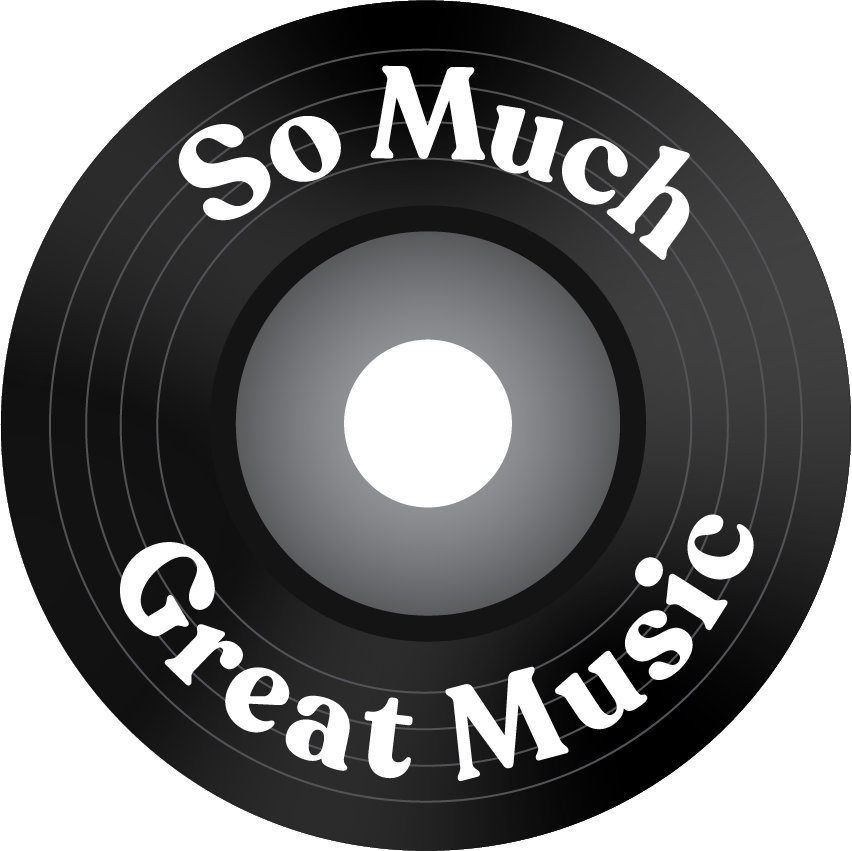
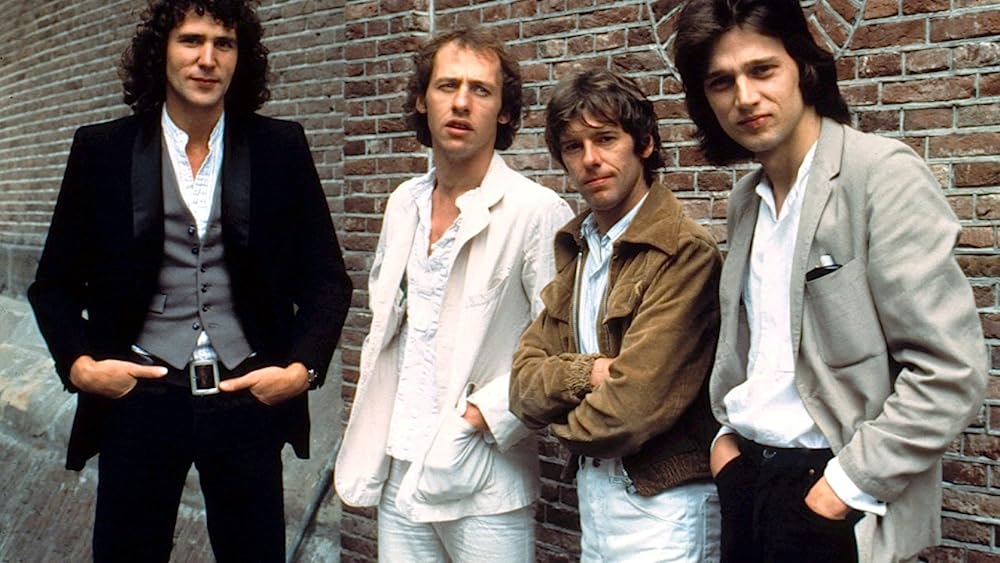
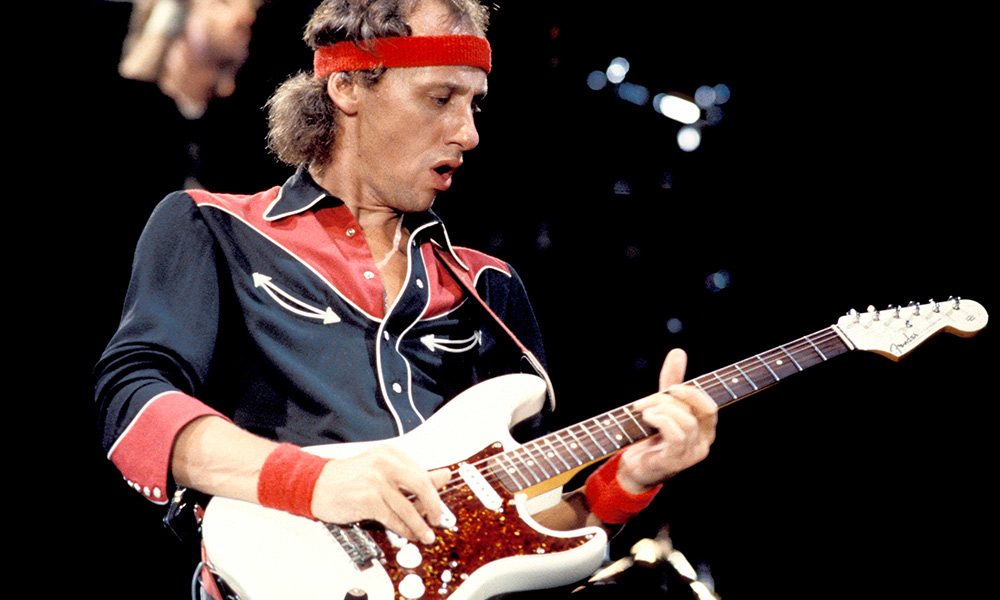


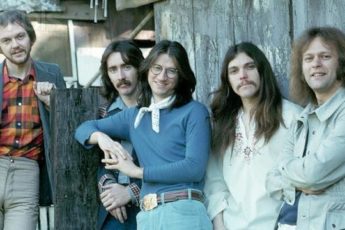

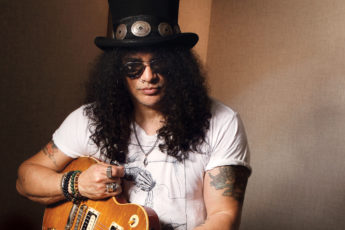
G barr
August 19, 2023 7:51 amLove Dire Straits. Great show at Saenger theater circa 1982/83, not sure. Just know I was there. Opened with Down to the Waterline. Didn’t Knopfler get in to a bad accident after band broke up. Also solo did concerts with an Irish flair to it and really did not play or enjoy playing any Dire Straits songs. I think he is now starting to recognize what a special band they were. Not sure why Stevie Ray Vaughan was not mentioned with guitar greats. He certainly in my top 5. Also great show at McAlister auditorium in 1983. One of best shows I have ever been to . . In hoc brother
Thomas
August 20, 2023 11:21 amSaw a video where Mark Knopfler teased-in an extra hook into the main hook of Sultans of Swing for a “live in the studio performance”. It was delightful. I have been trying to find that video again for ten years.
The fans rated them highly! Wikipedia has Brothers in Arms at thirty million in sales. One of the best selling albums in history, even nudging out Madonna.
Ziauddin Khan
November 8, 2023 2:28 pmDire Straits was a breath of fresh air amid the disco dross of the late 70s. His guitar playing felt unique, neither heavy rock nor pop fluff. I heard their debut album back in 1979, an audio cassette in a boombox. Blew me away. Have been a fan ever since.